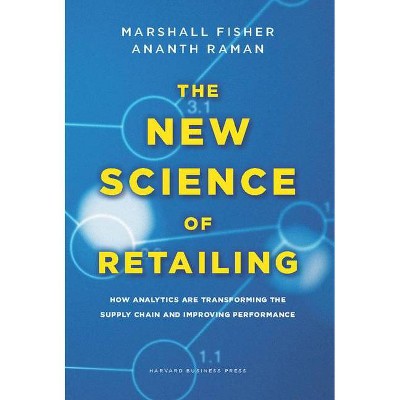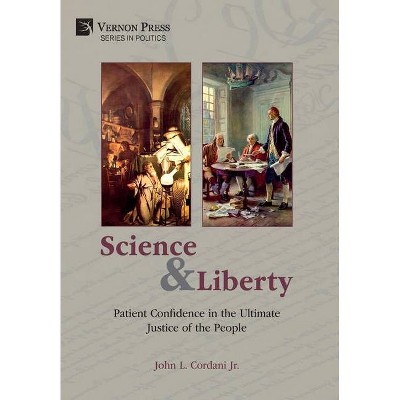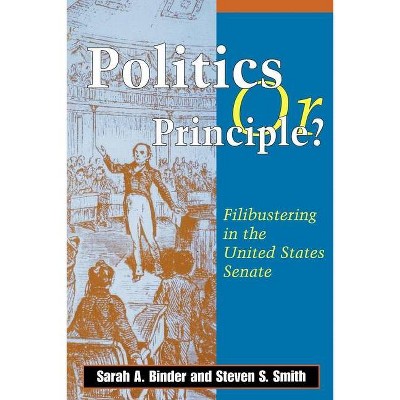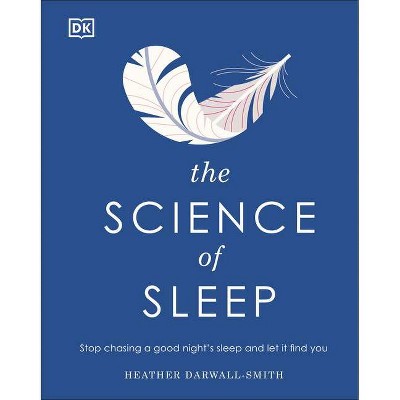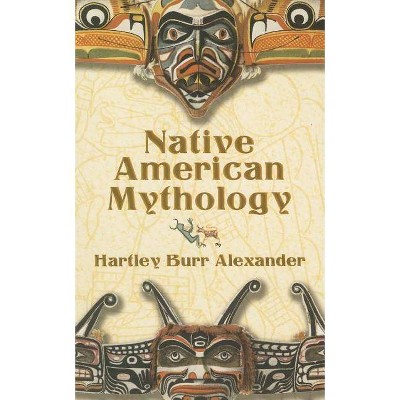Science and the Politics of Openness - by Brigitte Nerlich & Sarah Hartley & Sujatha Raman & Alexander Smith (Hardcover)
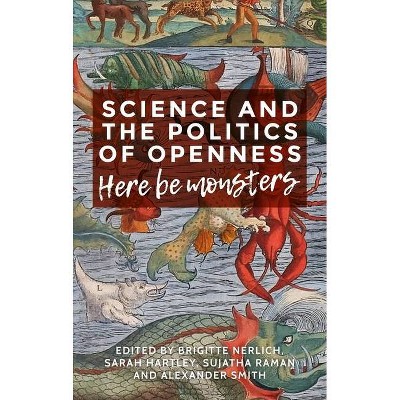
Similar Products
Products of same category from the store
AllProduct info
<p/><br></br><p><b> About the Book </b></p></br></br>The book critically questions the assumption that making science more open and public could solve various issues around scientific credibility, trust, and legitimacy. Chapters in this book explore the risks and benefits of this perspective with relation to transparency, responsibility, experts and faith.<p/><br></br><p><b> Book Synopsis </b></p></br></br><p>At present, openness in science is more important than ever. This study sheds light on hidden or ignored aspects of openness as a core policy agenda. While the opening up of science to public scrutiny and public deliberation is good in principle, various complications arise from such exposure. Does the policy of openness need to be discussed more directly, and is it wrong to assume that openness can improve science's reputation in the public sphere?<br /> <br /> Developed as a solution to perceived crises in science-society relations, openness and transparency initiatives might hide 'monsters' that need to be made visible and critically examined. This book does exactly that by dealing with four key themes: the transparency of science<strong> </strong>in the public sphere; responsibility in contemporary research practice and governance; experts<strong> </strong>of policy-making, risk assessment and the regulation of science; and tensions of faith and misunderstanding between science and religion. Each section of the book contains an opening essay by experts on a particular theme including contributions from Mark Brown, Benjamin Worthy, Barbara Prainsack, Sabina Leonelli and Chris Toumey. The book closes with an epilogue by Stephen Turner and an essay by John Holmwood. <br /> <br /> This book should be of interest to academics and members of the public who want to know more about the challenges and opportunities of 'making science public', the theme of the Leverhulme Trust-funded research programme on which this book is based.</p><p/><br></br><p><b> From the Back Cover </b></p></br></br>At present, openness in science is more important than ever. This study sheds light on hidden or ignored aspects of openness as a core policy agenda. While the opening up of science to public scrutiny and public deliberation is good in principle, various complications arise from such exposure. Does the policy of openness need to be discussed more directly, and is it wrong to assume that openness can improve science's reputation in the public sphere? Developed as a solution to perceived crises in science-society relations, openness and transparency initiatives might hide 'monsters' that need to be made visible and critically examined. This book does exactly that by dealing with four key themes: the transparency of science in the public sphere; responsibility in contemporary research practice and governance; experts of policy-making, risk assessment and the regulation of science; and tensions of faith and misunderstanding between science and religion. Each section of the book contains an opening essay by experts on a particular theme including contributions from Mark Brown, Benjamin Worthy, Barbara Prainsack, Sabina Leonelli and Chris Toumey. The book closes with an epilogue by Stephen Turner and an essay by John Holmwood. This book should be of interest to academics and members of the public who want to know more about the challenges and opportunities of 'making science public', the theme of the Leverhulme Trust-funded research programme on which this book is based.<p/><br></br><p><b> Review Quotes </b></p></br></br><br>'The cases are engagingly and thoughtfully written; indeed, the volume as a whole is generally a highly pleasurable read.' Public Understanding of Science<br><p/><br></br><p><b> About the Author </b></p></br></br><br><strong>Brigitte Nerlich</strong> is Emeritus Professor of Science, Language and Society at the University of Nottingham <p/><strong>Sarah Hartley</strong> is Senior Lecturer at the University of Exeter Business School <p/><strong>Sujatha Raman</strong> is Associate Professor in Science and Technology Studies at the University of Nottingham <p/><strong>Alexander Smith</strong> is Senior Leverhulme Research Fellow and Assistant Professor in Sociology at Warwick University<br>
Price History
Price Archive shows prices from various stores, lets you see history and find the cheapest. There is no actual sale on the website. For all support, inquiry and suggestion messages communication@pricearchive.us
